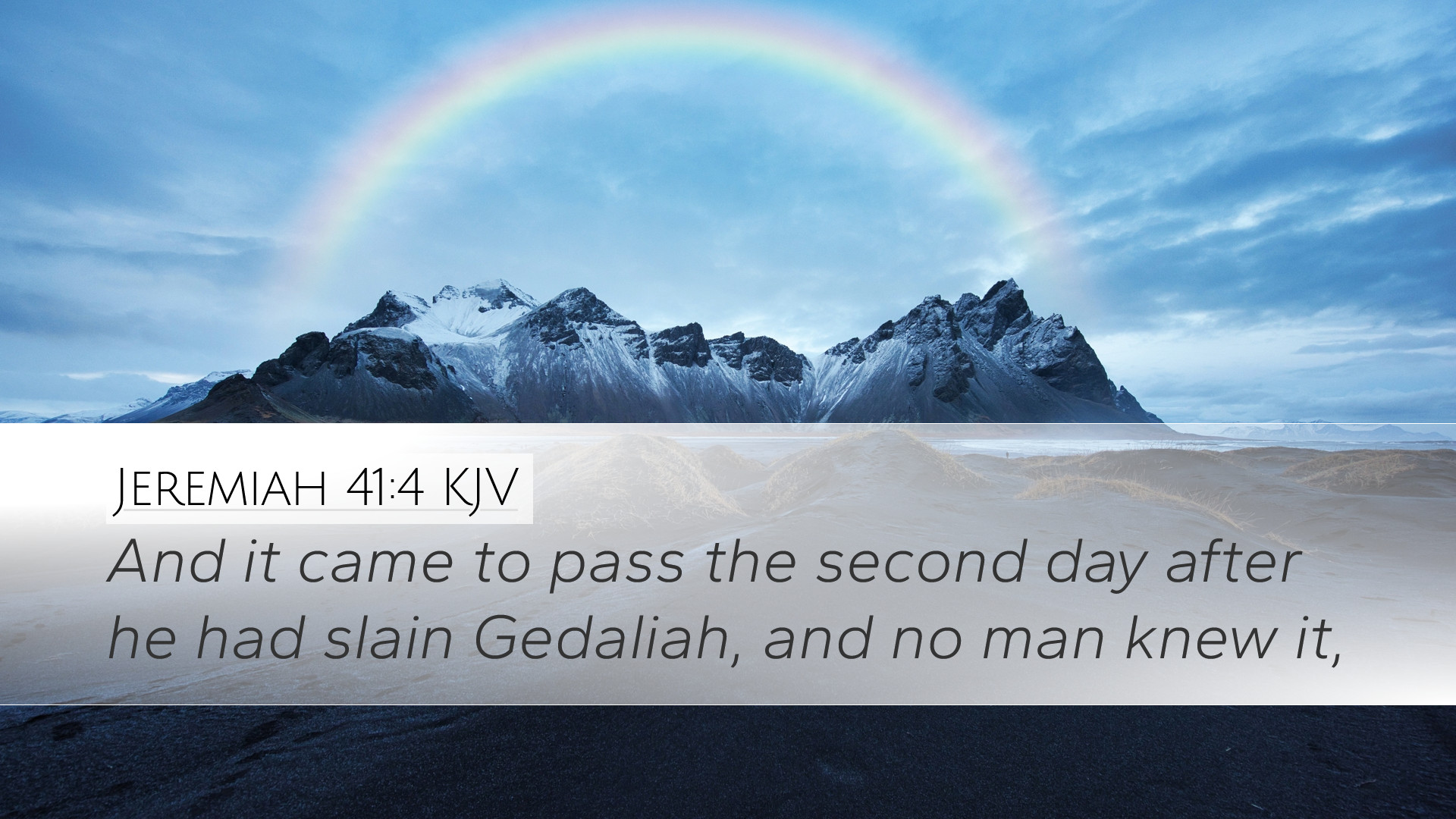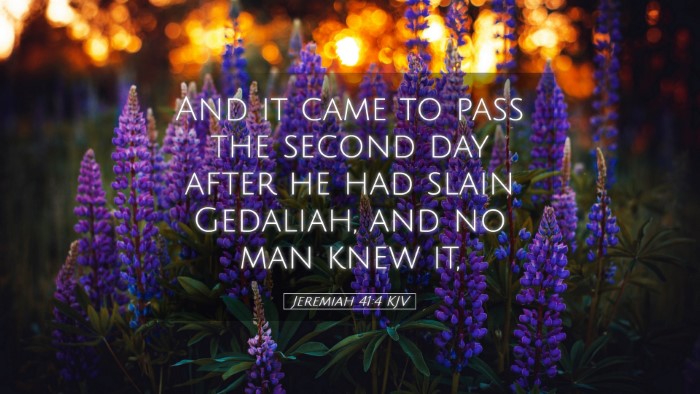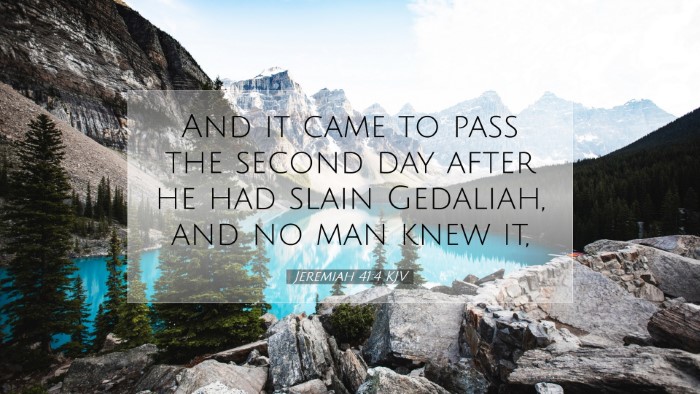Commentary on Jeremiah 41:4
Verse Context:
Jeremiah 41:4 states: "And it came to pass on the second day after he had slain Gedaliah, and all the people that were with him, that there came certain from Shechem, from Shiloh, and from Samaria, even fourscore men, having their beards shaven, and their clothes rent, and having cuts in their hands, and they brought meat offerings and incense to the house of the Lord." This verse describes a crucial moment following the assassination of Gedaliah, the appointed governor of Judea, leading to tumultuous events for the remnants of the Jewish people.
Exegetical Insights
The context of this verse reflects a period of political upheaval in post-exilic Judah. Gedaliah was viewed as a stabilizing force following the Babylonian exile, and his death caused widespread fear and chaos among the people.
Historical Background
The assassination of Gedaliah marks a turning point. Gedaliah's administration, as recounted in previous chapters, symbolized hope for restoration. The fact that this act of violence is followed by a gathering of people from Shechem, Shiloh, and Samaria illustrates the socio-political instability that plagued the region.
Commentary Highlights
- Matthew Henry: Henry notes the significance of the mourning practices of the men who come from distant regions, highlighting their outward expressions of grief. Their shaven beards and rent clothes symbolize not just personal mourning but a collective expression of lamentation for the loss of their leader. This illustrates the deep emotional and national impact Gedaliah’s murder had on the Jewish people.
- Albert Barnes: Barnes emphasizes the purpose of the visitors' arrival, underscoring their intent to bring offerings to the temple. He views this as a symbol of their desire to reconnect with God amidst despair. Barnes points out that formal worship plays an essential role in seeking divine favor, especially during times of distress.
- Adam Clarke: Clarke stresses the significance of the physical states of the individuals arriving in Jerusalem. Their cuts and torn garments reflect not just an outward show of grief but an internal desperation. Clarke interprets these actions as indicative of their dire need for divine intervention in the aftermath of political chaos.
Theological Reflections
This passage invites us to reflect on themes of loss, worship, and the quest for divine favor. The need for the people to bring offerings in a time of crisis reflects an understanding that spiritual restoration is essential for national healing.
Worship in Times of Crisis
The act of bringing offerings amidst chaos serves as a poignant reminder for pastors and leaders today: worship is not merely an event but an essential lifeline during our darkest moments. These men recognize the importance of humility before God and returning to Him for peace.
Communal Mourning
The communal aspect of grief underscores the notion of collective identity among believers. The Jewish people, despite their disunity following Gedaliah's murder, still felt an intrinsic need to come together in worship and lamentation. This can serve as a model for contemporary congregations, offering a framework for how communities must support each other in times of mourning.
Practical Applications
- Encouragement to Leaders: There is a profound call for leaders in the church to serve as stabilizing figures amidst chaos. The political dynamics of the past can still educate present-day leaders about the weight of their influence.
- Status of Worship: The importance of maintaining a posture of worship, regardless of circumstances. In difficult times, believers are encouraged to bring their lament and grief into the presence of God, believing in His power to restore.
- Unity in Diversity: The varied origins of the people gathering reflects the diversity within the body of Christ. This passage prompts Christians to unite despite differences for the greater goal of seeking God together.
Conclusion
Jeremiah 41:4 serves as a reminder of the emotional and spiritual turmoil faced by the remnants of Israel post-exile. This commentary draws from the insights of Matthew Henry, Albert Barnes, and Adam Clarke, collectively weaving a narrative that underscores the importance of grief, genuine worship, and communal identity during times of crisis. It invites present-day readers—pastors, students, and scholars—to examine their own responses to loss and their commitment to seeking God amidst the storms of life.


